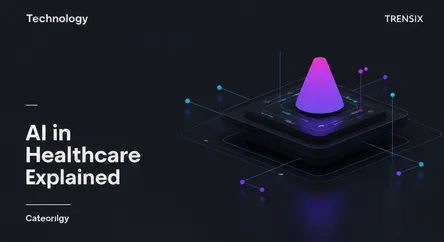Technology
AI in Healthcare Explained

Discover how Artificial Intelligence is revolutionizing medicine, from diagnosing diseases faster to personalizing patient treatment plans.
What is it?
AI in healthcare refers to the use of machine learning algorithms and other cognitive technologies to analyze complex medical data. Essentially, it's about creating tools that can mimic human intelligence to process information, recognize patterns, and make predictions. Applications range from robotic surgery and virtual nursing assistants to automating administrative tasks and, most significantly, aiding in disease diagnosis. By sifting through vast datasets like medical images, electronic health records, and genetic information, AI systems can identify risks and abnormalities that might be missed by the human eye.
Why is it trending?
The surge in AI's healthcare application is fueled by massive advancements in computational power and the availability of 'big data' from sources like wearables and digitized patient records. There's a growing demand for more efficient, cost-effective, and personalized medical care. AI promises to meet these needs by speeding up drug discovery, optimizing hospital workflows, and offering powerful predictive analytics that can foresee health issues before they become critical, shifting the focus from treatment to prevention.
How does it affect people?
For patients, AI means the potential for faster, more accurate diagnoses, especially in fields like radiology and pathology. It enables highly personalized treatment plans based on an individual's unique genetic makeup and lifestyle. For medical professionals, AI acts as a powerful assistant, reducing the burden of repetitive tasks, minimizing diagnostic errors, and providing data-driven insights to support clinical decisions. This allows doctors to spend more quality time on direct patient care, ultimately improving health outcomes for everyone.